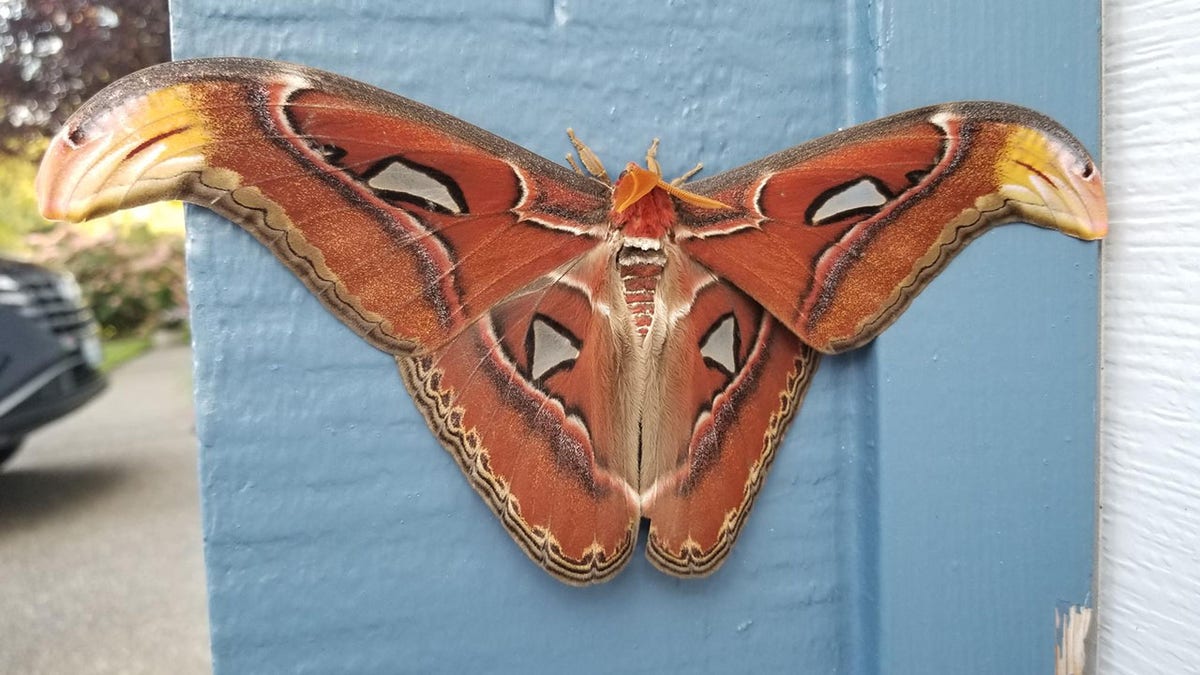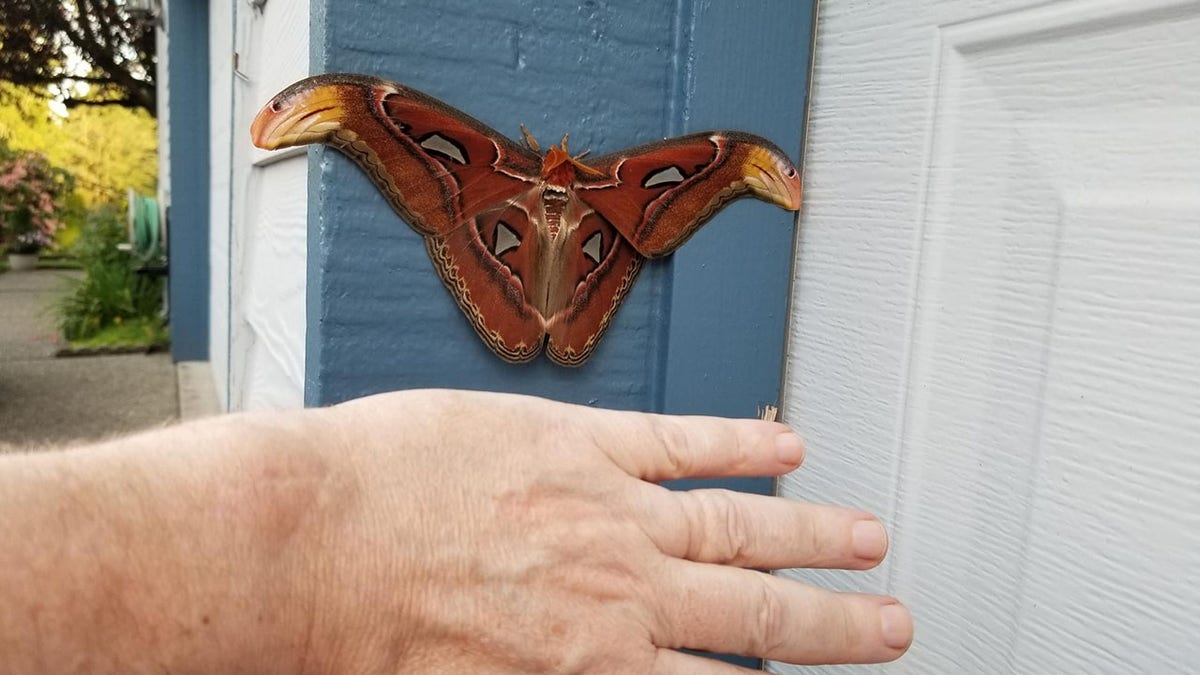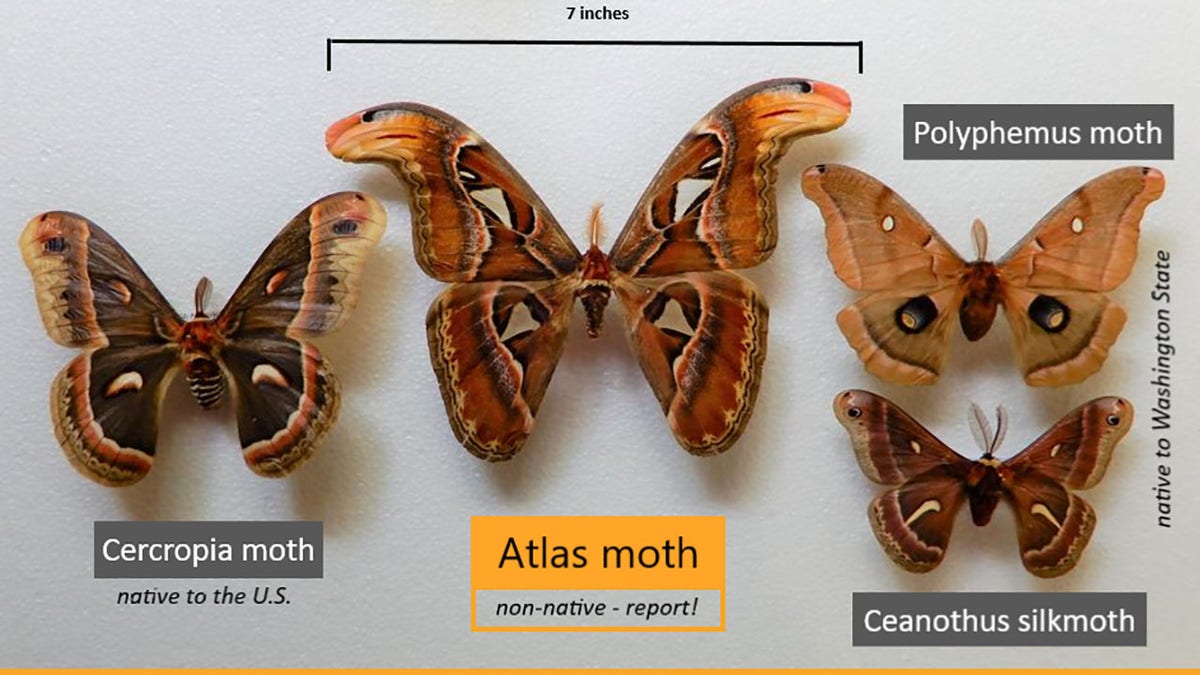Fox News Flash top headlines for August 18
Fox News Flash top headlines are here. Check out what's clicking on Foxnews.com.
One of the world’s largest moths has been discovered for the first time in the U.S. in Washington state, prompting officials to ask residents to report any sightings of the insect.
An atlas moth was initially reported to state entomologists by a University of Washington professor on July 7, the Washington State Department of Agriculture (WSDA) said. The moth is typically found in tropical climates and is not native to the U.S.
"This is a ‘gee-whiz’ type of insect because it is so large," Sven Spichiger, WSDA managing entomologist, said. "Even if you aren’t on the lookout for insects, this is the type that people get their phones out and take a picture of – they are that striking."
While considered a federally quarantined pest, the Atlas moth does not pose a public health threat and can be safely photographed, handled and collected, the agency said.
SPOTTED LANTERNFLY: WHAT YOU NEED TO KNOW ABOUT THE INVASIVE INSECT

Atlas moths are not native to the United States. (Washington State Department of Agriculture )
With a wingspan of up to almost 10 inches, the USDA said the atlas moth is one of the world’s largest known moths.
The single moth found in Washington state is believed to be the country's first confirmed detection of its kind. The WSDA said there is no evidence that an atlas moth population is established in the state and have been no reports of other sightings elsewhere in the U.S.

Atlas moths can have a wingspan of almost 10 inches, experts said. (Washington State Department of Agriculture )
Officials said that residents who believe they have spotted an atlas moth should send photos to pestprogram@agr.wa.gov and include the location in which it was found.

Officials asked residents to report any sightings of the atlas moth, pictured above with three species of moth native to the U.S. and Washington state. (Washington State Department of Agriculture )
"[The U.S. Department of Agriculture] is gathering available scientific and technical information about this moth and will provide response recommendations, but in the meantime, we hope residents will help us learn if this was a one-off escapee or whether there might indeed be a population in the area," Spichiger said.
CLICK HERE TO GET THE FOX NEWS APP
As a federally quarantined pest, it is illegal to obtain, harbor, rear, or sell live atlas moths whether adults, eggs, larvae or pupae without a permit from USDA.










































